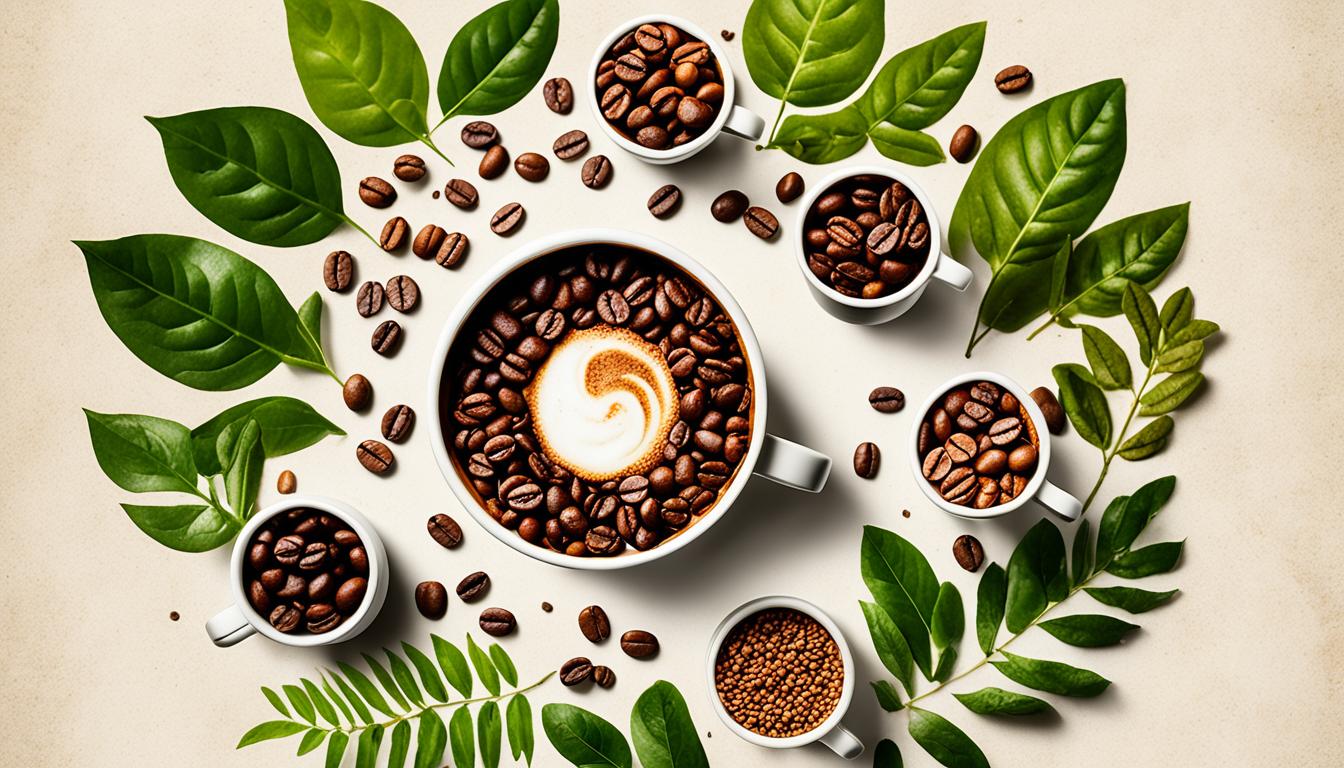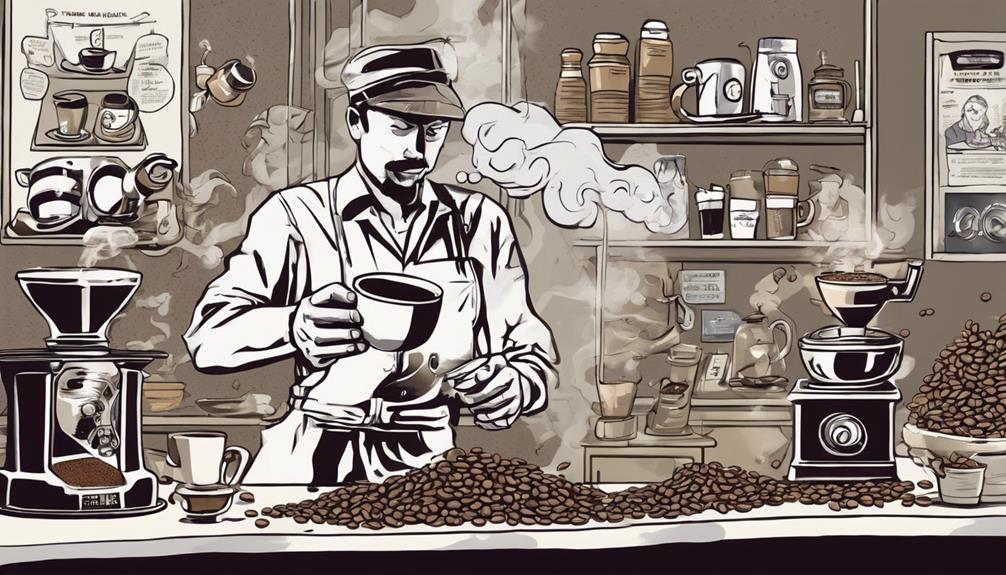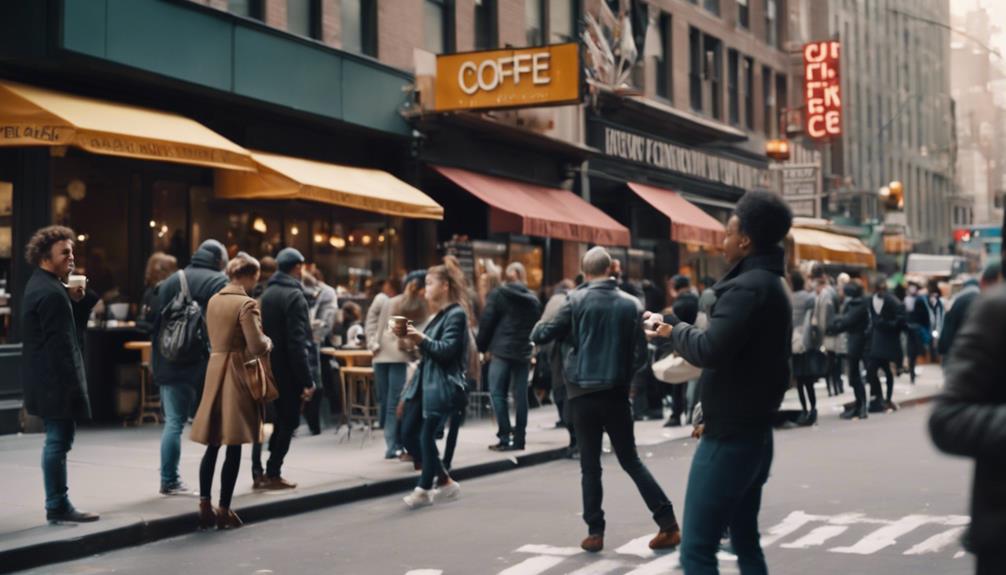Did you know that each cup of coffee can destroy one square inch of rainforest? This fact highlights the significant environmental impact of traditional coffee farming. However, coffee enthusiasts are now seeking alternatives that are environmentally friendly.
In 2024, there’s a lot of choices for organic and fair trade coffee. These options help the earth and support communities. We’ll explore ten coffee brands that really care about where their coffee comes from. They’re changing the way we think about enjoying our coffee and helping the planet and people at the same time.
Key Takeaways
- Eco-friendly coffee consumption can help mitigate environmental degradation.
- Many top sustainable coffee brands are making tangible contributions to community welfare.
- Choosing organic and fair trade coffee supports environmentally responsible practices.
- Awareness of the water footprint associated with coffee can inform better choices.
- Investing in sustainable brands can lead to significant returns for both consumers and farmers.
The Importance of Sustainable Coffee Production
It’s vital for coffee lovers to understand the importance of sustainable coffee. They want their coffee choices to show they care about the planet. Coffee drinking is increasing rapidly. It went up by 4.2% to 175.6 million bags in the 2021/22 period. This rise highlights the negative effects traditional coffee farming has on our environment.
Environmental Impacts of Conventional Coffee Farming
Traditional coffee farming uses lots of synthetic pesticides and fertilizers. These harm the soil and pollute water, hurting local ecosystems. Also, farming only one type of crop reduces biodiversity. This means less natural pest control, which comes from having different plants around.
Sustainable coffee farming looks to solve these issues. It includes methods like growing coffee under trees, which saves forests and encourages a variety of plant and animal life. Plus, these sustainable methods use resources more wisely. For instance, they use special watering techniques to save water. This helps with water shortages and improves crop production through composting.
Benefits of Organic and Fair Trade Practices
Organic coffee is made without harmful chemicals. This is better for both people and the planet. Producers follow strict rules that boost soil health and protect nature. But it’s not just about how it’s grown. Labels like Fair Trade make sure farmers are paid fairly, which helps them make a decent living.
Choosing fair trade coffee helps farmers earn more money. It also supports community projects that benefit coffee-growing areas. Brands like Counter Culture Coffee build lasting relationships with their suppliers. They get 71% of their coffee from these reliable sources. These partnerships are good for the environment and make coffee taste better.
| Practice | Environmental Benefit | Social Impact |
|---|---|---|
| Organic Coffee | Protects ecosystems by avoiding chemicals | Ensures farmers’ livelihoods without exploitative practices |
| Fair Trade Certification | Promotes sustainable farming | Enhances community development and fair pricing |
| Shade-Grown Cultivation | Preserves forests and biodiversity | Supports diverse incomes for farmers |
| Composting | Improves soil quality and reduces waste | Encourages farmer education and sustainable practices |
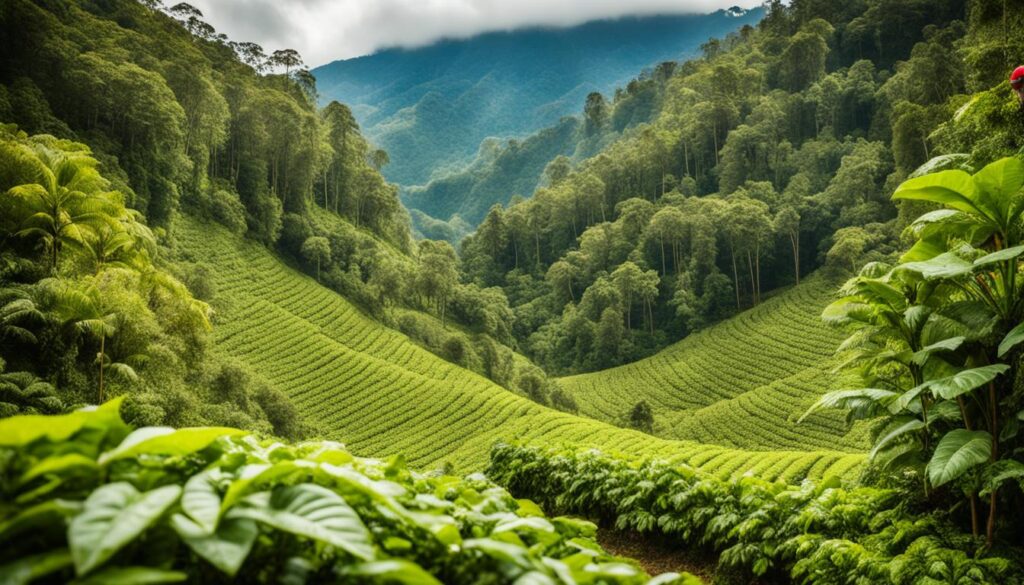
Top 10 Most Sustainable Coffee Brands in 2024
The coffee industry is focusing more on being eco-friendly. Many brands work hard to be kind to the planet. They are chosen for their great quality, ethical sourcing, and positive community impact. Here, find the leading coffee brands in sustainability for 2024.
Cafédirect: A Pioneer in Fair Trade
Cafédirect is a front-runner in Fair Trade coffee. It has supported growers with significant amounts for over 30 years. Being recognized for ethical practices, it always puts sustainable production first.
Equal Exchange: Empowering Farmers Through Co-Ownership
Equal Exchange shows that a worker-owned co-op benefits farmers. It’s transparent, offers fair wages, and promotes eco-friendly farming. This brand is a guide for responsible coffee consumption.
Higher Ground Roasters: Commitment to Organic and Environmental Causes
Higher Ground Roasters exclusively uses organic and Fair Trade beans. It partners with nonprofits for the environment, emphasizing coffee’s green production.
Grumpy Mule: Stubborn About Sustainability
Grumpy Mule is devoted to sustainable roasting. Every batch meets strict standards, showing long-term sustainability is key. It attracts those wanting sustainable yet high-quality coffee.
BLK + Bold: Supporting Youth Initiatives
BLK + Bold donates 5% of profits to help kids. This shows its commitment to social issues and eco-friendliness. It’s known for quality coffee and community support.
Wandering Bear: Innovative Cold Brew Solutions
Wandering Bear leads in cold brew by focusing on quality and sustainable sourcing. Their innovative efforts place them among top sustainable coffee brands in 2024.
Made by DWC: Empowering Women Through Coffee
Made by DWC helps homeless women by offering coffee jobs. This approach merges sustainability with empowering communities. It demonstrates the brand’s commitment to social justice.
DOMA Coffee: Eco-Friendly Roasting Practices
DOMA Coffee is known for green roasting and supporting communities. It focuses on saving energy and responsible sourcing. This effort makes it a respected eco-friendly coffee brand.
Stumptown: Renowned for Ethical Sourcing
Stumptown is committed to direct trade, ensuring transparency. Its stellar ethical sourcing reputation ranks it high among consumers who value sustainability in their coffee choice.
Pura Vida: Champions of Fair Trade and Community Development
Pura Vida blends Fair Trade with aiding kids’ health and education. This dedication to overall well-being and ethics ranks it high among eco-friendly coffee names.

Choosing the Right Sustainable Coffee
When you pick your coffee, it’s important to think about sustainability. You need to understand certifications well. This means you can find top-notch coffee that’s also good for the planet. Choosing coffee from local and small-brewers helps the community. It also supports eco-friendly coffee production.
Understanding Certifications: Fair Trade vs. USDA Organic
There are two certifications you should know about: Fair Trade and USDA Organic. Fair Trade makes sure farmers get a fair deal and follow green practices. USDA Organic means no synthetic pesticides were used. It’s good for the soil and all living things around. Knowing these helps you buy coffee that aligns with your values.
Considering Quality: The Importance of Mold and Mycotoxin Testing
Great coffee needs to taste good and be safe. Mold can be a problem in coffee beans. So, many brands test for mycotoxins, which are bad substances in moldy goods. This keeps the coffee safe and maintains the brand’s good name.
Supporting Local and Small Scale Brewers
Choosing local coffee helps your community and the planet. Small-scale brewers often follow organic and Fair Trade rules. It’s a win-win. Farmers get fair prices, and you get great coffee that’s made the right way.
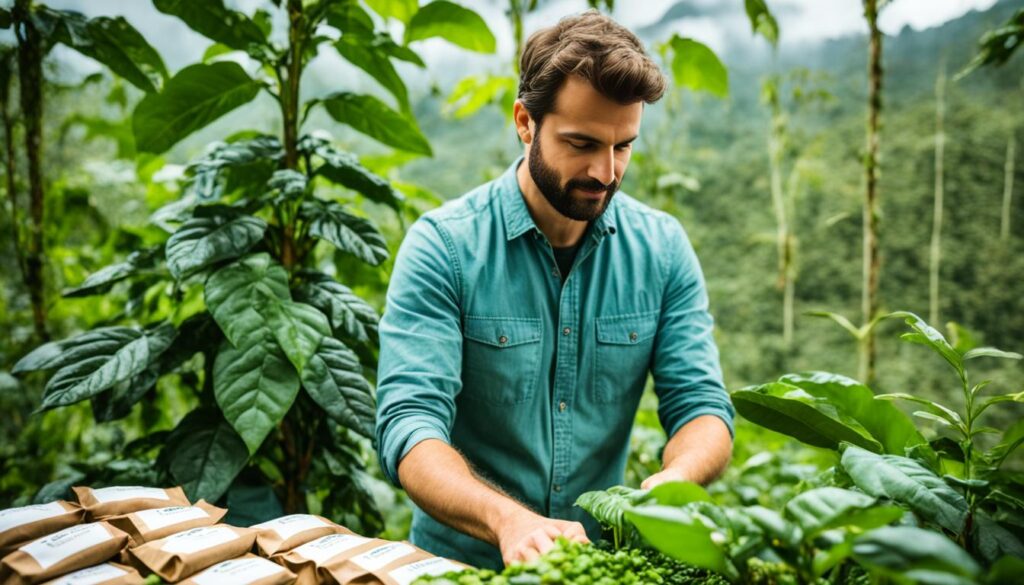
| Brand | Type of Certification | Key Sustainability Practices | Price Range |
|---|---|---|---|
| Larry’s Coffee | Fair Trade | Supports small farms (2-5 acres), long-term partnerships | Varied |
| Ethical Bean | Fair Trade, USDA Organic | Renewable energy partnerships, donations to education programs | Varied |
| Café Mam | Fair Trade | Donates to social justice causes, sustainable farming methods | Varied |
| Higher Ground Roasters | Fair Trade, USDA Organic | Committed to shade-grown practices | Varied |
| Lifeboost Coffee | USDA Organic | Tests for toxins and molds | $20 – $200 |
| Equal Exchange | Fair Trade, USDA Organic | Sourcing from small farmers, eco-friendly packaging | $26 – $103 |
How to Brew Eco-Friendly Coffee at Home
Making sustainable coffee at home is about great taste and caring for the environment. It’s important to use good techniques for keeping coffee fresh, grinding it right, and brewing. These tips help keep coffee fresh and make its preparation better for our planet.
Storing and Grinding Tips for Freshness
For the best coffee taste, storing and grinding it properly matters a lot. Here are some tips to make sure your beans stay fresh:
- Store coffee beans in airtight containers to protect them from light, moisture, and odors.
- Keep containers in a cool, dark place to further preserve quality.
- Grind coffee beans just before brewing for maximum flavor and aroma retention.
Eco-Conscious Brewing Methods
Choosing eco-friendly ways to make coffee can lower your environmental footprint. Here are some green brewing options:
- Think about using pour-over or French press methods instead of single-use pods, to cut down on trash.
- Choose coffee machines that save energy or turn off automatically to save on electricity.
- Use reusable coffee filters, like those made of hemp, to reduce waste and get a better taste.
- Try using coffee cups with cork bands for your travels, to avoid single-use cups and sleeves.

Brewing green coffee is all about trying different ways. Various methods bring out special flavors and experiences. Choosing organic coffee brands also shows support for eco-friendly efforts.
Conclusion
Choosing sustainable coffee choices from top brands in 2024 not only supports personal values but also fosters environmental stewardship. By selecting options like Lifeboost, renowned for its traceable, single-origin beans, and Volcanica Coffee Company, which prioritizes shade-grown beans from optimal regions, consumers can enjoy their coffee while positively impacting the planet. These brands show the importance of ethical coffee buying with organic and Fair Trade certifications, making every cup matter.
Moreover, innovative options like Koa Coffee’s “Cold Brewed” process bring health benefits and an unforgettable flavor experience. The sustainable coffee scene is always getting better. Each cup tells stories of small farms and dedicated farmers. It highlights how choosing consciously helps communities thrive.
In conclusion, by picking sustainable coffee, coffee lovers can enjoy great flavors and help the planet. Their choices in sourcing and certifications uplift coffee farmers around the world. Thus, every sip becomes part of a more sustainable future.
